Apple officially unveiled the Apple iPhone 16 Pro and Pro Max as the paladins for the utmost iPhone experience. Both pack Apple’s most powerful phone hardware yet, almost leveling up to the level of Apple’s M series Mac chips.
But the Apple iPhone 16 Pro and iPhone 16 Pro Max have little to differ apart from their size. Apple splits the Pro series into two classes: big Pro and little Pro models. With differently-sized bodies, the aspects that obviously vary are the size of the screen, the phones’ heft, and battery capacities. But is there more to this than immediately meets the eye? Is there a reason to buy the Pro Max if you normally prefer smaller phones, or vice versa?
Below, we classify each of these differences and discuss how different dimensions affect the user experience differently on the iPhone 16 Pro and the iPhone 16 Pro Max, and whether there’s one that comes out on top.
Apple iPhone 16 Pro vs. iPhone 16 Pro Max: specs
| Specs | iPhone 16 Pro | iPhone 16 Pro Max |
|---|---|---|
| Size | 149.6 x 71.5 x 8.25 mm (5.89 x 2.81 x 0.32 inches) | 163 x 77.6 x 8.25 mm (6.42 x 3.06 x 0.32 inches) |
| Weight | 199 g (7.03 oz) | 227 g (7.99 oz) |
| Screen | 6.3-inch Super Retina XDR OLED
1206 x 2622 pixels ProMotion with 120Hz dynamic refresh rate Dolby Vision, 2,000 nits brightness |
6.9-inch Super Retina XDR OLED
1320 x 2868 pixels ProMotion with 120Hz dynamic refresh rate Dolby Vision, 2,000 nits brightness |
| Operating system | iOS 18 | iOS 18 |
| RAM and storage | 128GB, 256GB, 512GB, 1TB
Details on RAM awaited |
256GB, 512GB, 1TB
Details on RAM awaited |
| Processor | Apple A18 Pro
Six-core CPU Six-core GPU 16-core NPU |
Apple A18 Pro
Six-core CPU Six-core GPU 16-core NPU |
| Camera | Rear:
48-megapixels primary, f/1.8, 1/1.28″, OIS 48MP ultrawide, f/2.2, 120° FOV 12MP telephoto, f/2.8, 5x optical zoom Front: 12MP, f/1.9, 1/3.6″ |
Rear:
48MP primary, f/1.8, 1/1.28″, OIS 48MP ultrawide, f/2.2, 120° FOV 12MP telephoto, f/2.8, 5x optical zoom Front: 12MP, f/1.9, 1/3.6″ |
| Video | Rear:
4K, up to 120 fps Front: 4K, up to 60 fps |
Rear:
4K, up to 120 fps Front: 4K, up to 60 fps |
| Connectivity | Wi-Fi 7, dual-band
Bluetooth 5.3 |
Wi-Fi 7, dual-band
Bluetooth 5.3 |
| Ports | USB-C Gen 3.2
DisplayPort |
USB-C Gen 3.2
DisplayPort |
| Water resistance | IP68 (maximum depth of 6m up to 30 minutes) | IP68 (maximum depth of 6m up to 30 minutes) |
| Battery & charging | Details on battery capacity awaited
45W fast charging 25W wireless charging via MagSafe 15W Qi2 wireless charging |
Details on battery capacity awaited
45W fast charging 25W wireless charging via MagSafe 15W Qi2 wireless charging |
| Colors | Black Titanium, White Titanium, Natural Titanium, Desert Titanium | Black Titanium, White Titanium, Natural Titanium, Desert Titanium |
| Price | Starts at $999 | Starts at $1,199 |
Apple iPhone 16 Pro vs. iPhone 16 Pro Max: design
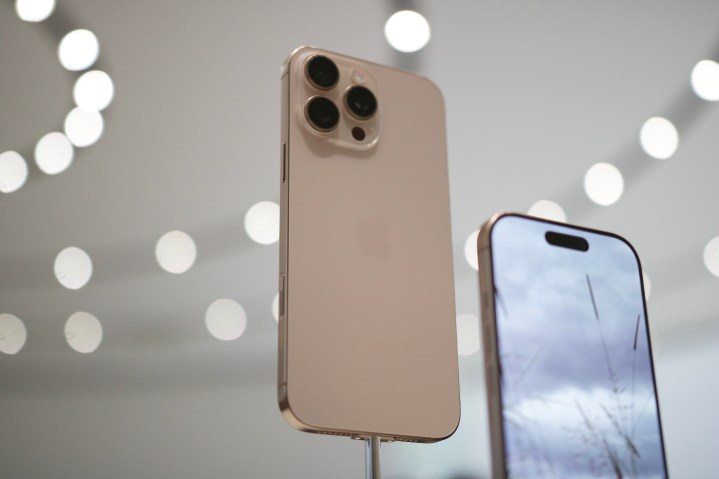
The iPhone 16 Pro and the iPhone 16 Pro Max essentially have the same design but with one very obvious difference: the size. The standard iPhone 16 Pro has much smaller dimensions, similar to the smaller iPhone 16. The Pro Max, on the other hand, has a much larger footprint to facilitate the massive display. The larger size also leads to the iPhone 16 Pro Max weighing roughly 30 grams heavier than the standard Pro. However, despite these differences, the two phones are equally thick at 8.25mm, which is impressive.
The iPhone 16 Pro Max is essentially a scaled-up version of the 16 Pro, though the camera is almost the same size. Both phones also identical buttons, including the new Camera Control button, but may have different placements according to the size. That means the distance your thumb needs to travel to access those buttons will vary. The ease with each of the phones will depend on your preferences and the size of your hands.
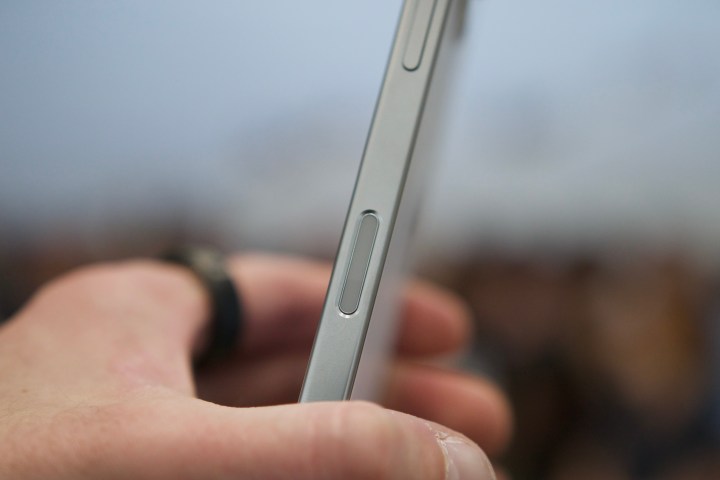
There’s one thing we’re skeptical about though, and that is the ease of accessing the Camera Control button, especially on the smaller model. The new Camera Control button on the side of all iPhone 16 models is designed to launch the Camera app quickly. While its shutter button-like placement could inspire users to click more pictures in landscape mode, some might still want to use it when capturing vertical photos or videos — or use it to invoke the Visual Intelligence interface to scan their surroundings. Because of the space limitation on the iPhone 16 Pro, using the button may a bit challenging while holding the phone with one hand.
Other than that, there aren’t any other ways the two iPhones differ. They even get identical color options, including the new copper-ish Sand Titanium (initially rumored to be coffee). Other major differences between the phones lie in the display.
Apple iPhone 16 Pro vs. iPhone 16 Pro Max: display
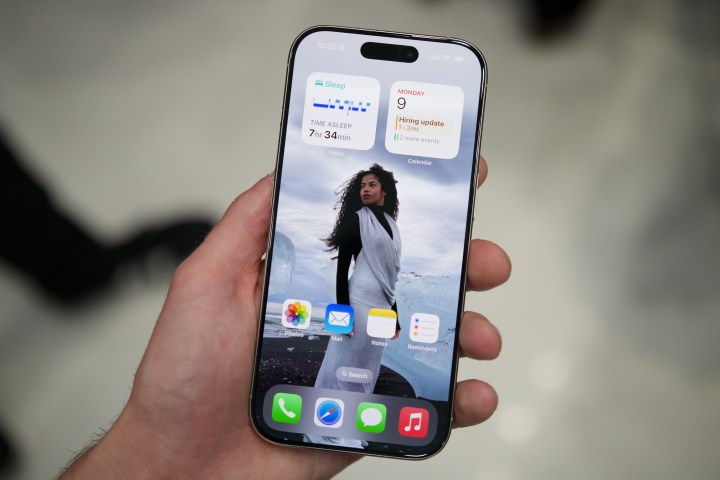
The difference between the displays on the two phones is highly apparent, with a clear distinction between the standard iPhone 16 Pro and the iPhone 16 Pro Max. Simultaneously, both phones are getting a marginal increase in display sizes over the non-Pro iPhone 16 models, as well as the older iPhone 15 Pro and Pro Max, thanks to leaner bezels and slightly larger bodies.
The iPhone 16 Pro now gets a 6.3-inch display, up from the 6.1-inch on the previous generation. Meanwhile, the iPhone 16 Pro Max now goes up to 6.9 inches, taller than the iPhone 15 Pro Max as well as stalwarts, such as the Galaxy S24 Ultra and the Pixel 9 Pro XL, in the Android ecosystem.
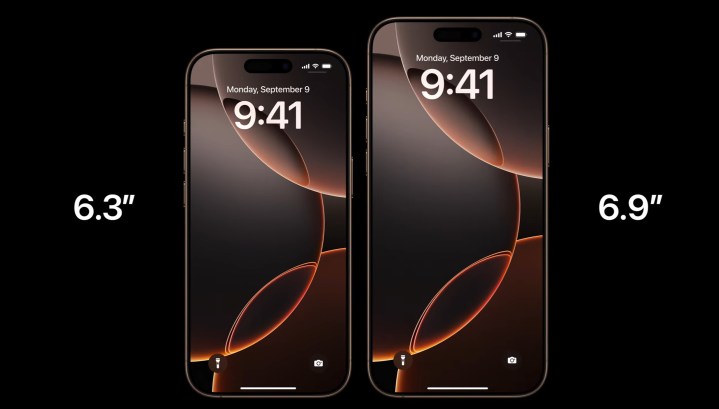
The size difference results in different screen resolutions as Apple aims to offer the same level of sharpness (same pixel density) on both displays. The two displays also get the same brightness of up to 2,000 nits and up to 120Hz variable refresh rate, and both come with Dynamic Island.
Apart from the size, there isn’t much to differ between the iPhone 16 Pro and 16 Pro Max’s displays.
Apple iPhone 16 Pro vs. iPhone 16 Pro Max: performance
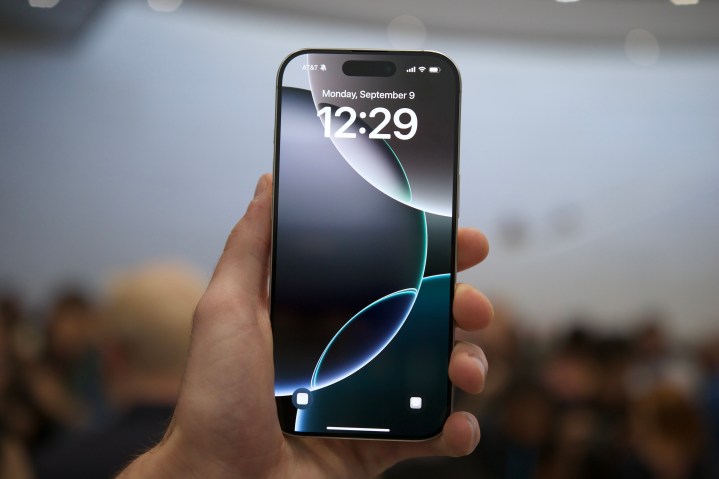
Apple furnishes the iPhone 16 Pro and the iPhone 16 Pro Max with nearly the same hardware, and the same applies to the insides of the two phones as well. Both of them are powered by Apple’s latest A18 Pro chip with a new and more efficient design than the predecessor that powers the iPhone 15 Pro.
Without many differences to the numbers of cores on the CPU, GPU, and the Neural Engine, Apple says the new chipset now offers 15% faster performance than the last year’s A17 Pro. The CPU gets two dedicated units to run low-power AI applications off it instead of tossing them to the Neural Engine.
The GPU gets 20% better graphics capabilities and 2X faster ray tracing rendering. The Neural Engine doesn’t get a noticeable upgrade over the iPhone despite the event’s emphasis on Apple Intelligence. Nonetheless, it can still process up to 35 TOPS (trillion operations per second), which is nearly as good as the Neural Engine on the Mac’s M4 silicon.
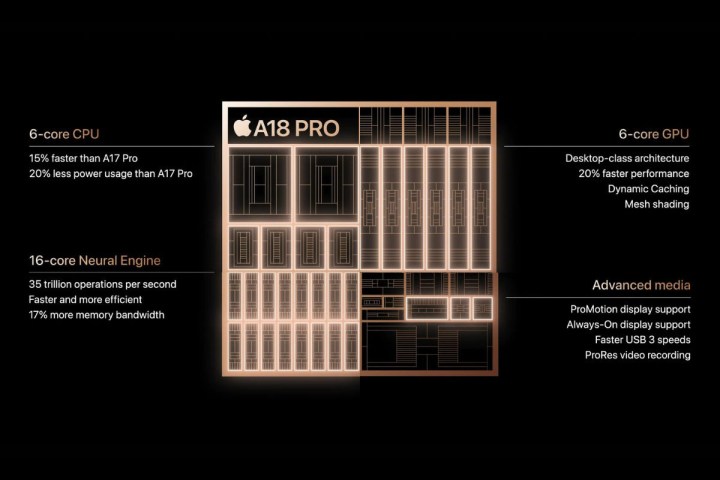
One minor difference between the iPhone 16 Pro and the Pro Max is the available storage options on both phones. While the iPhone 16 Pro comes with 128GB, 256GB, 512GB, and 1TB options, the Pro Max lacks a 128GB variant, following the same pattern from the iPhone 15 Pro range. Storage of 128GB admittedly makes little sense for phones of this caliber, and would be filled quickly, especially if you record plenty of videos with the iPhone 16 Pro. At the same time, it would have helped make the larger iPhone 16 Pro Max more accessible and lowered the price by $100 or so. It would also make sense as Apple lets you upload practically all of your files, media, and even data from apps seamlessly to iCloud.
Another potential difference between the iPhone 16 Pro and the Pro Max could lie in their abilities to ward off heat. Though Apple doesn’t specify, one can suspect the smaller phone also forces Apple to reduce the size of the passive vapor cooling tech inside. Even if that’s not the case, the smaller surface area could lead to slower dispersion of heat during intensive scenarios such as gaming. We will test this aspect while reviewing the two phones in the coming days.
Apple iPhone 16 Pro vs. iPhone 16 Pro Max: battery and charging
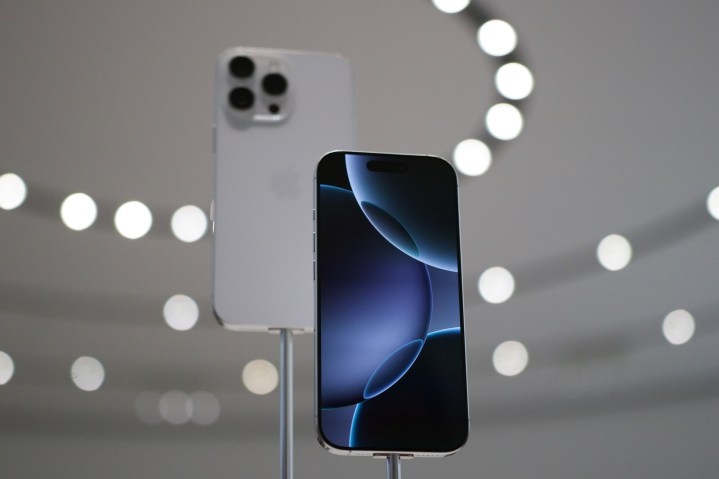
Another fundamental consequence of the smaller size of the iPhone 16 Pro versus the Pro Max is limited space for its battery pack. Though Apple does not reveal the exact battery sizes, it shares numbers on the expected battery backup — and there’s a lot of variation between the two phones.
The iPhone 16 Pro delivers 27 hours of video playback time, whereas the iPhone 16 Pro Max can last for a total of 33 hours despite the larger — more demanding — display. Notably, these numbers are only indicative of the respective battery’s performance and may not translate to real-world backup. Despite that, we see a clear advantage with the Pro Max.
While we hope to learn about the actual battery capacities soon, it’s worth noting the iPhone 15 Pro had a 25% smaller battery than the iPhone 15 Pro Max. We wouldn’t be surprised if the new iPhone 16 Pro series follows suit.
When it comes to charging speeds, Apple is likely to have eliminated any disparity between the two devices — and as a matter of fact, with all iPhone 16 phones. The entire series is rumored to come with 45W of fast charging over the wired USB-C connection. In addition, the phones also support up to 25W wireless charging with MagSafe and 15W wireless charging using accessories with the more common Qi2 protocol. Both phones can also pump charge wirelessly into accessories, such as AirPods, though they won’t charge the Apple Watch.
Apple iPhone 16 Pro vs. iPhone 16 Pro Max: cameras
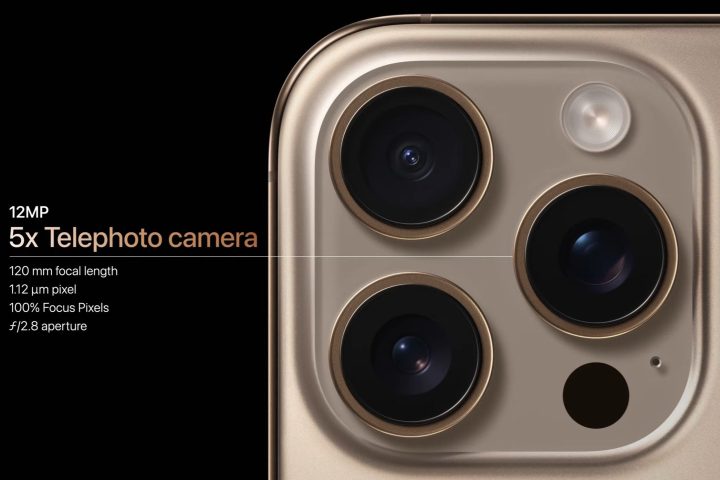
With the iPhone 15 series, Apple introduced a new 5x telephoto camera but limited it to the iPhone 15 Pro Max. This year, both the iPhone 16 Pro and the 16 Pro Max get the exact same camera systems, including the 5X telephoto. The identical camera systems on both phones also include the new 48-megapixel primary camera that can now shoot images faster and an improved 48MP ultrawide-angle camera that can combine four pixels into one for brighter shots. The 12MP selfie camera remains unchanged from the previous year.
With the new primary camera, Apple also includes the ability to shoot 4K HDR videos at 120 frames per second, which can be slowed down to 24 fps for more gripping cinematic effects. As with other performance-intensive tasks, we can expect the iPhone 16 Pro Max’s larger body to give it an edge in thermal performance.
Both phones also get four microphones now that allow a more holistic sound capturing, especially tuning it for spatial use cases. Besides capturing sounds at different distances, the microphone array can also eliminate background noise using machine learning.
With identical cameras, we can suspect both phones to have the same performance while taking photos, though the iPhone 16 Pro Max could have an advantage for videos — whether you consider its resilience against heat or the advantage of serving as a bigger viewfinder.
Apple iPhone 16 Pro vs. iPhone 16 Pro Max: software and updates
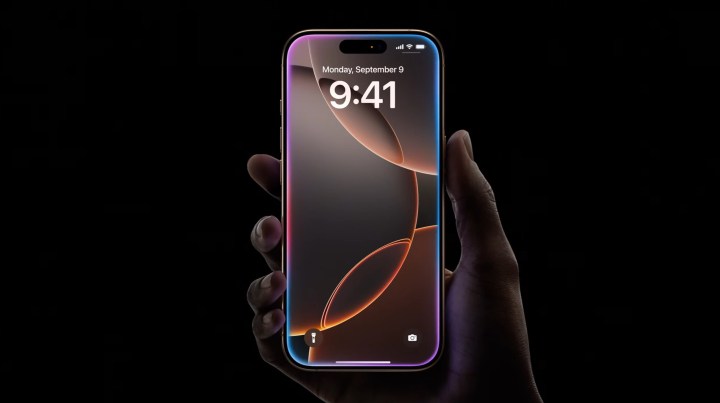
Apple’s iOS 18 boots right off the bat on all new iPhone 16 models. Apple Intelligence and Android-like customization features are central to the latest version of iOS, and we expect an undiluted experience across both the iPhone 16 Pro and the iPhone 16 Pro Max. iOS 18 also brings one key addition to Messages, in the form of RCS support.
The only advantage of the iPhone 16 Pro Max would derive from its larger screen and its ability to edit icons for apps or in the Control Center more easily. However, considering Apple closely controls the experience across its phones — and not just the flagship models — we don’t foresee limitations with either of the models.
Once again, the varying usability of screens on both devices depends largely on your preferences more than any other factor.
Apple iPhone 16 Pro vs. iPhone 16 Pro Max: price and availability
The iPhone 16 Pro has a starting price of $999, which gets you the 128GB variant. Meanwhile, the 256GB variant goes up to $1,099. The iPhone 16 Pro Max starts at $1,199 for its base 256GB variant.
Both the iPhone 16 Pro and the iPhone 16 Pro Max are currently available for preorders. Apple is expected to begin deliveries starting September 20, but you would likely have to wait a few more weeks because of high demand for the Pro models.
Apple iPhone 16 Pro vs. iPhone 16 Pro Max: which one should you buy?
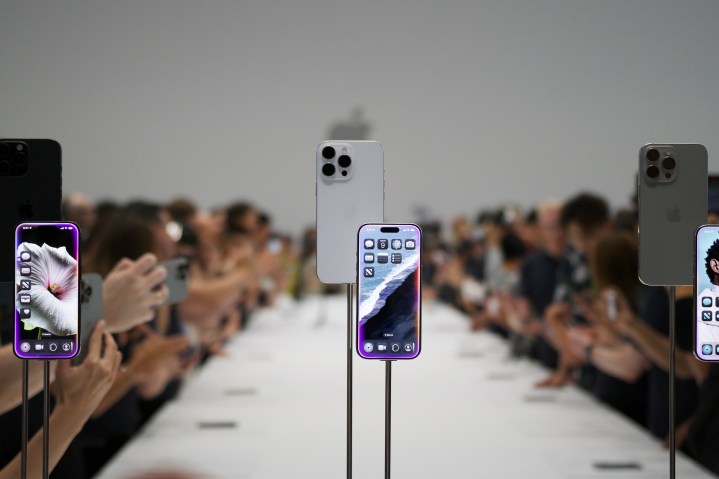
The iPhone 16 Pro and the iPhone 16 Pro Max are largely replicas of each other, with basic differences based on the size. The smaller iPhone 16 Pro is lighter and easier to wield. At 6.3 inches, it does not necessarily have a small screen, and should suffice unless you explicitly prefer larger displays.
The larger iPhone 16 Pro, despite the extra bulk, has certain advantages. Foremost, the larger area accounts for better cooling in more demanding tasks, such as gaming or videography. If you intend to use the iPhone for a few years, the advantage may become more apparent as the processing demands for iOS and apps intensify. The bigger screen also gives you more real estate for watching video content, gaming, or while recording videos. We also expect your thumb to rest at a more relaxing position while using Camera Control button on the iPhone 16 Pro Max compared to the smaller Pro.
Despite those minor trade-offs with each of the phones, none of them is a deal-breaker. Both are among the best phones you will be able to buy for the remaining part of the year through September next year. Most importantly, these are the best devices if you wish to be among the first to experience Apple Intelligence features that will be available in the coming months.










